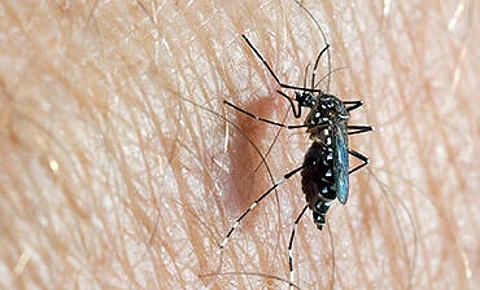
- NEWS
- the EDIT
- COMMENTARY
- BUSINESS
- LIFE
- SHOW
- ACTION
- GLOBAL GOALS
- SNAPS
- DYARYO TIRADA
- MORE

While the Philippines still has no vaccine against dengue, experts batted on Monday for vector control to eliminate the mosquito-borne illness.
Dr. Fatima Gimenez, past president of the Pediatric Infectious Disease Society of the Philippines, emphasized that a vaccine is not the only means to control dengue.
“I think our surveillance system should also be ramped up and improved,” Gimenez said during the Asia Dengue Voice and Action (ADVA) press conference in Ortigas Center, Quezon City.
“And since our health system has very much evolved, we know that priorities would be dependent on the local government units. There has to be collaboration between the central and the LGUs,” she said, noting that private organizations like medical societies have always championed the importance of controlling dengue.
Vector control is something the government needs to look to, according to the health expert.
Common vector control strategies include eliminating mosquito breeding sites, using insecticides, and employing biological control agents, such as fish that eat mosquito larvae and introducing sterile male insects to reduce breeding.
Dengvaxia closure
For Dr. Lulu Bravo, international advisor to the Asia Dengue Voice and Action Group, there needs to be closure on the Dengvaxia issue, which has affected how the public views vaccines.
Bravo pointed out that vaccine confidence dropped sharply — from 93 percent in 2015 to 32 percent in 2018 — after the Dengvaxia fiasco.
In 2015, the Philippines became the first Asian country to approve the sale of the world’s first-ever dengue vaccine, Dengvaxia.
However, in 2017, controversy arose when Sanofi Pasteur, the vaccine’s manufacturer, announced that Dengvaxia could lead to severe symptoms in individuals who had never been infected with dengue before being vaccinated.
As a result, the Food and Drug Administration ordered the suspension of Dengvaxia’s sale, distribution, and marketing, and required its withdrawal from the Philippine market.
“I think, for one, there needs to be closure. Because that’s one of the hindrances,” said Bravo as the country remains without a dengue vaccine.
Currently, vaccine advocates are pushing for approval of the Japan-manufactured QDenga vaccine, highlighting its efficacy and safety, particularly in reducing deaths and severe dengue cases.
QDenga is designed to meet World Health Organization guidelines for second-generation dengue vaccines. It posts an 80.2-percent effectiveness rate and can be administered to adults, adolescents, and children as young as four years old.
According to the European Medicines Agency, it has also been shown to reduce hospitalization due to dengue by 90 percent.
QDenga had applied for a certificate of product registration with the FDA in 2023.
